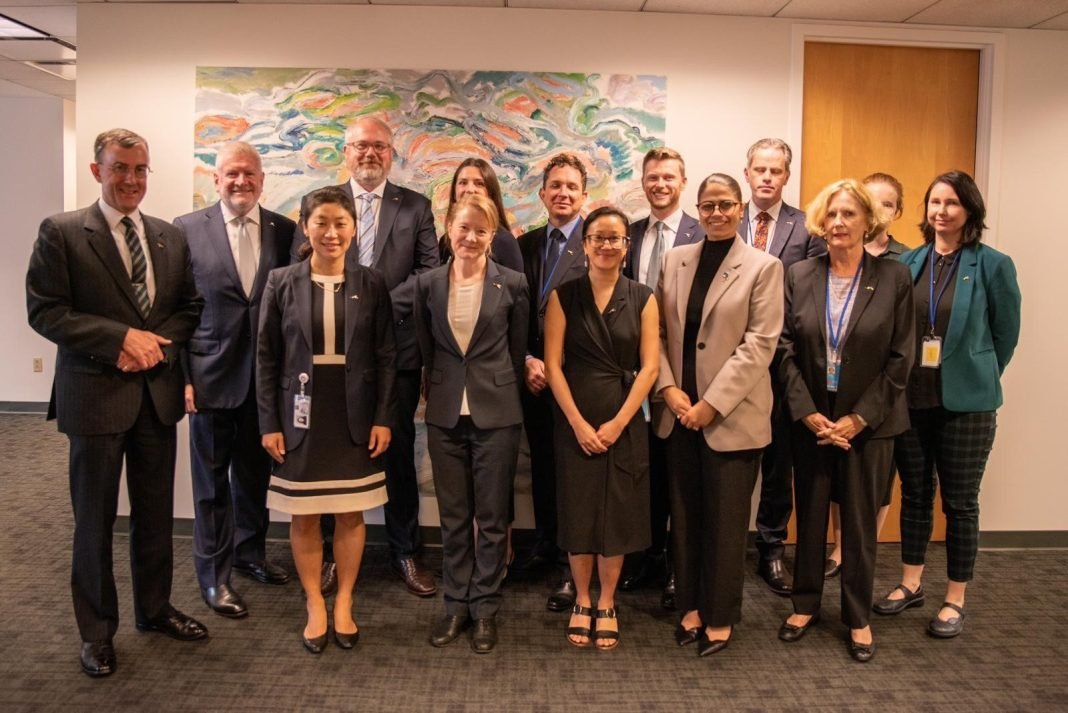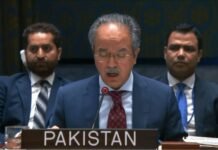Canberra, 3 August 2022 (TDI): Australia is joining the nations around the world at the non-proliferation Treaty (NPT) review conference to review and advance its objectives.
The Australian delegation is working to achieve results that promote a world free of nuclear weapons and improve the global non-proliferation and disarmament framework.
At the #NPT Review Conference, 🇦🇺 is joining nations from around the world to review the treaty & advance its objectives. Our delegation is pursuing outcomes that help strengthen the global non-proliferation & disarmament architecture & support a world free of nuclear weapons. https://t.co/RwA4KjMFUR
— DFAT🇦🇺 (@dfat) August 2, 2022
United Nations Secretary-General António Guterres stressed that the Non-Proliferation of nuclear weapons is very crucial for world safety.
Geopolitical tension is rising as the states spend billions of dollars more on the development of nuclear weapons. Nearly 13,000 nuclear weapons are being kept in stockpiles across the world.
António Guterres said, “Humanity is just one misunderstanding, one miscalculation away from nuclear annihilation. We need the Treaty on Non-Proliferation of nuclear weapons as much as ever.”
Treaty of Non-Proliferation (NPT)
The Treaty on the Non-Proliferation of nuclear weapons (NPT) is an important international agreement that aims to stop the spread of nuclear weapons and technology.
The treaty encourages cooperation in the peaceful uses of nuclear energy and emphasizes the complete disarmament of nuclear weapons.
The NPT is the only multilateral pact that makes a legally enforceable commitment to the nuclear-weapon states’ disarmament as a goal.
The 10th Non-Proliferation Treaty Review Conference Beguns on August 1, 2022, for a month. The 10th Review Conference provides an opportunity to reinforce the NPT and the disarmament and non-proliferation framework.
The review conference implemented practical disarmament measures that boost transparency and lower risks. This indicates a return to a shared path toward a nuclear-weapons-free world.
Australia’s position on NPT
Australia is committed to achieving the elimination of nuclear weapons from the world. It has long promoted global nuclear non-proliferation and disarmament efforts using a practical, progressive and realistic approach.
Australia collaborates with other nations to promote non-proliferation and disarmament. Australia continually encourages collaboration within the framework of NPT for disarmament.
Australia, UK, and US (AUKUS) Joint Steering Groups met at the tenth Review Conference of the Treaty on the Non-Proliferation of nuclear weapons.
Assistant Minister for Trade and Manufacturing, Tim Ayres recalled that last year, Australia, the UK, and the US announced to start of a trilateral effort for Australia’s acquisition of nuclear-powered, conventionally armed submarines.
The Non-Proliferation Treaty, the IAEA Statute, and Australia’s extensive safety agreements allow Australia the acquisition of nuclear submarines.
The three partners are committed to preserving their legal responsibilities on improving the legitimacy of the non-proliferation regime.
Cooperation Under AUKUS Partnership
Joint Steering Groups welcomed the release of a working paper titled “Cooperation under the AUKUS partnership” for the Review Conference of the Treaty on the Non-Proliferation of nuclear weapons.
AUKUS members committed in the report to give Australia full, welded power units that prevent the extraction of nuclear material. It was also highlighted that Australia will not pursue uranium enrichment.
During the 18-month consultation process, Australia is moving transparently, cooperating closely with the IAEA, and updating the international community about all the activities.
Tim said that First Nations lands and peoples had suffered unfairly from the effects of nuclear weapons testing in Australia, the Pacific, and other regions of the world.
He said, “The resolve to maintain a nuclear weapons-free and independent Pacific, and the dogged determination of the Pacific States shall be a clarion call to this Conference to rebuild momentum towards total disarmament.”
He also expressed support for the growing focus on diversity in the campaigning and technical workaround disarmament, particularly attempts to expand the number of women participating in this work.
Student of BS International Relations in Kinnaird College for Women. Currently, working in 'TDI' as a contributor.








